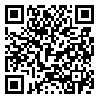Wed, Aug 13, 2025
[Archive]
Volume 11, Issue 3 (Summer 2025)
JCCNC 2025, 11(3): 199-208 |
Back to browse issues page
Download citation:
BibTeX | RIS | EndNote | Medlars | ProCite | Reference Manager | RefWorks
Send citation to:



BibTeX | RIS | EndNote | Medlars | ProCite | Reference Manager | RefWorks
Send citation to:
Cashin A, Pracilio A, Wilson N. Diminished Role Autonomy and Ambivalence, Key Factors in the Demise of Person-centred Care. JCCNC 2025; 11 (3) :199-208
URL: http://jccnc.iums.ac.ir/article-1-750-en.html
URL: http://jccnc.iums.ac.ir/article-1-750-en.html
1- Department of Discipline Psychological and Social Science, Faculty of Health and Human Sciences, Southern Cross University, Lismore, Australia. , andrew.cashin@scu.edu.au
2- Department of Nursing, Faculty of Health and Human Sciences, Southern Cross University, Lismore, Australia.
3- Department of Nursing, School of Nursing and Midwifery, Hawkesbury Campus, Western Sydney University, Richmond, Australia.
2- Department of Nursing, Faculty of Health and Human Sciences, Southern Cross University, Lismore, Australia.
3- Department of Nursing, School of Nursing and Midwifery, Hawkesbury Campus, Western Sydney University, Richmond, Australia.
Abstract: (323 Views)
Background: The nursing workforce has been under prolonged strain, beginning with the pandemic and continuing into a post-pandemic inflationary economic crisis. Research published in 2017 in Australia identified registered nurse practice to be person-centred. This practice is embedded as a foundational concept in the Australian Registered Nurse standards for practice, and it was determined to represent actual, rather than aspirational practice at the time of the underpinning research.
Critique: This critical assessment paper considers the question as to whether the axis has shifted to a bio-medical, or system centred, model of nursing care in response to the sustained stress.
Conclusion: It is concluded that axis appears to have shifted to a bio-medical or system centred model of nursing care. This shift has not been a consciously decided upon course of action, but rather a regression to an older vision of nursing. The re invigoration of bureaucratic hierarchical models of care impinging role autonomy, are conceived as the mechanism of the shift, arising through ambivalence.
Critique: This critical assessment paper considers the question as to whether the axis has shifted to a bio-medical, or system centred, model of nursing care in response to the sustained stress.
Conclusion: It is concluded that axis appears to have shifted to a bio-medical or system centred model of nursing care. This shift has not been a consciously decided upon course of action, but rather a regression to an older vision of nursing. The re invigoration of bureaucratic hierarchical models of care impinging role autonomy, are conceived as the mechanism of the shift, arising through ambivalence.
Full-Text [PDF 542 kb]
(87 Downloads)
| | Full-Text (HTML) (22 Views)
● There seems to be a shift away from person-centred care.
● A regression to a bio-focused model may have occurred, contributed to by the pandemic and financial crisis.
● Role autonomy and ambivalence are two factors worthy of further research.
● A regression to a bio-focused model may have occurred, contributed to by the pandemic and financial crisis.
● Role autonomy and ambivalence are two factors worthy of further research.
Plain Language Summary
A robust research project identified that registered nurse care was person-centred in Australia in 2017. The concept of person-centeredness became a foundational component of the Registered Nurse standards for practice. Research in Australia and internationally has identified that person-centred care is not the norm. It appears plausible that the pandemic and financial strains in the interim period have contributed to reduced role autonomy, increased ambivalence, and a regression to a bio-focused, task-driven model of care. Further rigorous research is indicated.
Type of Study: Review Article |
Subject:
General
Received: 2024/12/17 | Accepted: 2025/04/5 | Published: 2025/08/1
Received: 2024/12/17 | Accepted: 2025/04/5 | Published: 2025/08/1
Send email to the article author
| Rights and permissions | |
 |
This work is licensed under a Creative Commons Attribution-NonCommercial 4.0 International License. |






